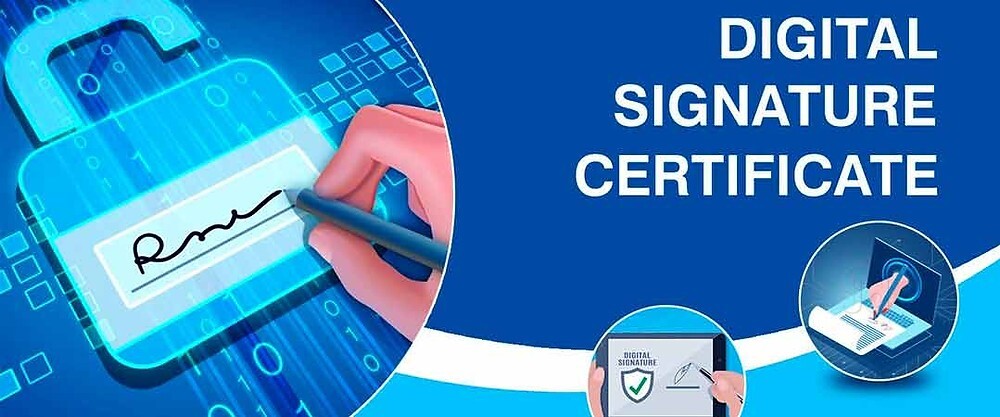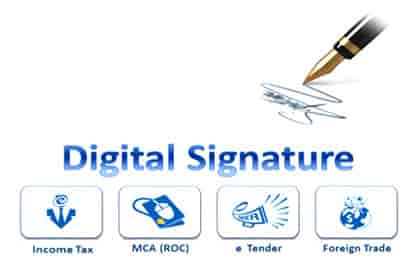

Introduction
The Goods and Services Tax (GST) in India is a comprehensive tax system that affects businesses of all sizes, including proprietorships. To ease the process of GST registration, the government introduced the concept of Digital Signature Certificates (DSC). A question that often arises is whether a DSC is mandatory for proprietorships under the GST regime. This article will explore the necessity of DSC for proprietorships, its usage, benefits, limitations, and application, and provide clarity on this topic. The article structures itself step-by-step to answer frequently asked questions and explain how DSC plays a role in GST registration and compliance.
Definition of DSC and GST
Before diving into whether DSC is mandatory, it is important to understand what a DSC is.
-
A Digital Signature Certificate (DSC): A Digital Signature Certificate (DSC) serves as an electronic equivalent of a physical signature to authenticate digital documents. It ensures the signer of the document is legitimate and guarantees that no alterations have been made to the document.
-
Goods and Services Tax (GST): GST replaces various taxes such as VAT, service tax, and excise duties, making it a single indirect tax. Its implementation simplified tax compliance and ensured a unified market across India.
Is DSC Mandatory for Proprietorship under GST?
The short answer is: No, DSC is not mandatory for proprietorships for GST registration and filing. However, certain scenarios require a DSC, and understanding these nuances is crucial.
1. GST Registration for Proprietorship
A proprietor wishing to register under GST can do so through the GST portal. The process involves filling out the GST registration form (GST REG-01), submitting documents such as PAN card, proof of business, and bank account details.
-
For Individual Proprietors: A sole proprietorship can apply for GST registration using the PAN of the individual. In such cases, a DSC is not mandatory. You can register using an Aadhaar-based OTP for authentication.В This simplifies the process for proprietors who do not have a DSC.
-
For Other Entities (e.g., LLP, Company): For partnerships, LLPs, and companies, a DSC is mandatory for the GST registration process. This is because these entities require a higher level of authentication compared to individual proprietorships.
Thus, proprietorships are exempt from the mandatory requirement of DSC for GST registration, but other entities are not.
2. Usage of DSC for Proprietorships
While DSC is not mandatory for GST registration, there are situations where a proprietor may need to use it:
-
GST Filing (Returns and Invoices): If a proprietor chooses to file GST returns and other documents on behalf of their business, they may need to obtain a DSC.. While most proprietors file using an Aadhaar-based OTP (especially for simpler filings), businesses that need to file returns through their accountant or tax professional may use a DSC.
-
Electronic Signature for Documents: You can use a Digital Signature Certificate (DSC) to sign important documents digitally, such as notices, audit reports, or applications. While it’s not required for filing GST returns, some forms of communication with GST authorities may require it.
3. Benefits of DSC for Proprietorships
While not mandatory, there are several advantages to using a DSC in the GST process:
-
Enhanced Security: A DSC ensures the integrity and authenticity of the signed document. It is an essential tool for preventing fraudulent activities and misrepresentation.
-
Convenience: It enables the signing of documents online, saving time and effort associated with manual signatures.
-
Legal Validity: A DSC is legally recognized under the Information Technology Act, 2000, making it equivalent to a physical signature.
-
Efficient Filing: A DSC may speed up certain processes, especially for businesses that need to file returns on behalf of their clients or other businesses.
4. Limitations of DSC for Proprietorships
While there are several advantages, the use of DSC also has some limitations:
-
Cost: Acquiring a DSC involves a cost, and if not necessary for the GST filing, it might be an added expense.
-
Renewal: DSCs have an expiration date and need to be renewed, which can become an administrative burden.
-
Technical Knowledge: Using a DSC requires some level of technical know-how, which might be confusing for non-technical business owners.
5. Application of DSC in GST Filing
For a proprietorship, the application of DSC is relatively limited compared to other business types. However, businesses that need to file GST returns on behalf of clients or use an accountant or tax professional often require DSC. This is common in the following cases:
-
GST Annual Return (GSTR-9): Entities with a turnover above a certain threshold can sign the GST Annual Return (GSTR-9) using a DSC.
-
GST Audit Report:Entities with a turnover above a certain threshold can sign the GST Annual Return (GSTR-9) form using a DSC.
-
Appeal or Complaint:If a business intends to file an appeal or complaint with the GST authorities, it can use DSC for authentication.
Cooperative Table: When Does DSC Become Required?
| Scenario | DSC Requirement for Proprietorship |
|---|---|
| GST Registration | Not Mandatory (Aadhaar OTP can be used) |
| Filing GST Returns | Optional (Aadhaar OTP can be used for simpler returns) |
| GST Annual Return (GSTR-9) | Optional (Can use Aadhaar OTP) |
| GST Audit Report | Optional (Can use Aadhaar OTP) |
| Filing GST Appeals or Complaints | Required (for more complex cases) |
Conclusion
To sum up, a Digital Signature Certificate (DSC) is not mandatory for a proprietorship to register for GST. However, it offers several benefits, such as enhanced security, legal validity, and convenience in filing GST-related documents. Proprietors can choose to use Aadhaar-based OTP for GST registration and filing of returns. In cases where a DSC is required, such as filing GST annual returns or audit reports, proprietors can obtain a DSC if needed. Thus, while it is not mandatory, using a DSC can be advantageous in certain situations, especially for those who prefer to file documents electronically and ensure a higher level of authenticity.
10 FAQs About DSC and GST for Proprietorships
-
Is DSC mandatory for GST registration for a proprietorship?
-
No, DSC is not mandatory for GST registration of a proprietorship. You can use Aadhaar-based OTP for authentication.
-
-
Can a proprietorship use Aadhaar-based OTP for GST filing?
-
You can use Aadhaar-based OTP to file GST returns and other GST-related documents.
-
-
When is DSC required for a proprietorship under GST?
-
A Digital Signature Certificate (DSC) is required for a proprietorship under GST when it needs to file certain documents electronically, such as GST returns, applications, or other forms that mandate DSC for authentication.
-
-
Is DSC legally valid for GST filings?
-
The Information Technology Act, 2000 legally recognizes DSC.
-
-
What are the benefits of DSC for GST filings?
-
DSC offers enhanced security, convenience, legal validity, and efficiency in signing digital documents.
-
-
What is the cost of obtaining a DSC?
-
The cost of obtaining a DSC varies depending on the provider, but it generally ranges from INR 1,000 to INR 3,000 annually.
-
-
Do I need a DSC for GST returns if I’m a sole proprietor?
-
You do not require DSC to file GST returns if you are a sole proprietor. You can use Aadhaar OTP instead.
-
-
How long is a DSC valid?
-
A DSC typically expires after 1-2 years and requires renewal before expiration.
-
-
Can I use a DSC for multiple GST filings?
-
Once you obtain a DSC, you can use it for multiple GST filings, as long as it remains valid.
-
-
What happens if I lose my DSC?
-
If you lose your DSC, you must contact the issuing authority to revoke the lost certificate and obtain a new one.
In conclusion, DSC is not mandatory for a proprietorship to register or file for GST, but it can provide additional benefits and security for GST-related filings, especially in more complex cases. Proprietors can make an informed decision based on their specific needs.
For further details access our website https://vibrantfinserv.com

To visit:https://www.mca.gov.in
Contact:В В В В 8130555124, 8130045124
Whatsapp:В В https://wa.me/918130555124
Mail ID:В В В В В В operations@vibrantfinserv.com
Web Link:В В В https://vibrantfinserv.com
FB Link:В В В В В В https://fb.me/vibrantfinserv
Insta Link:В В https://www.instagram.com/vibrantfinserv2/